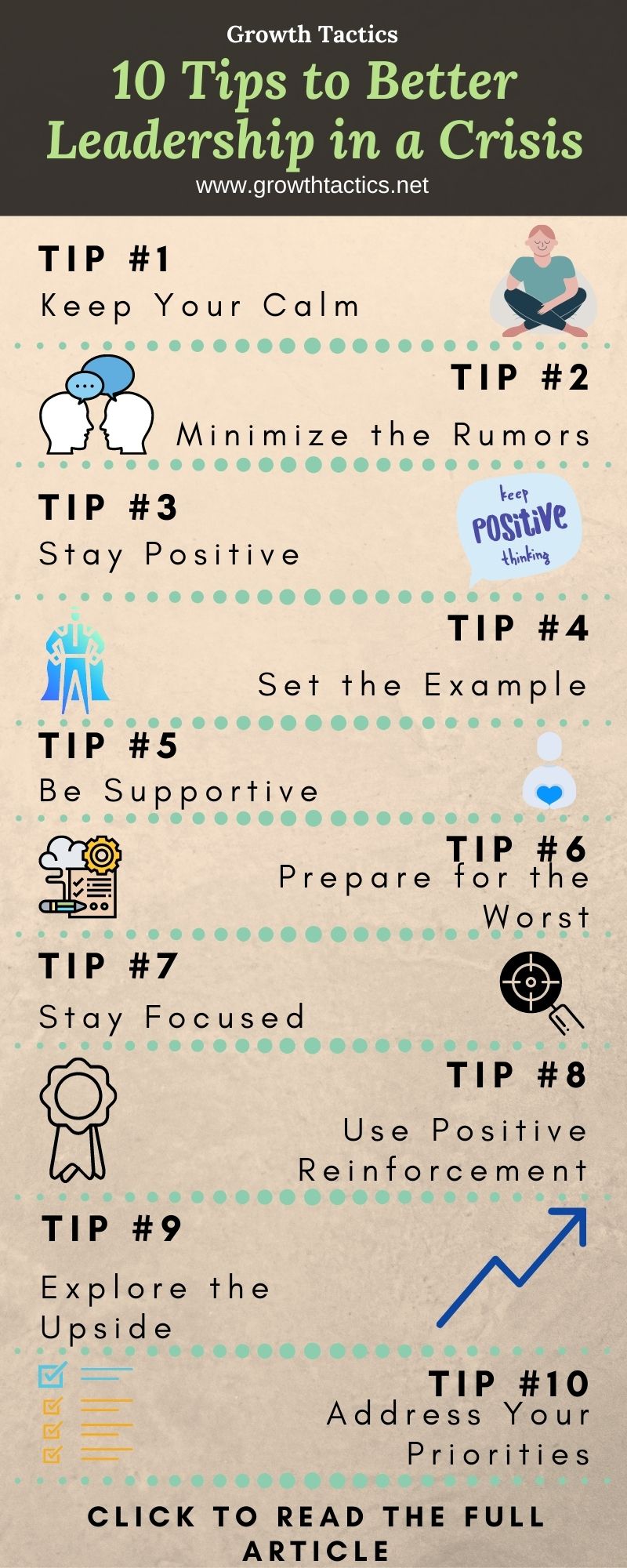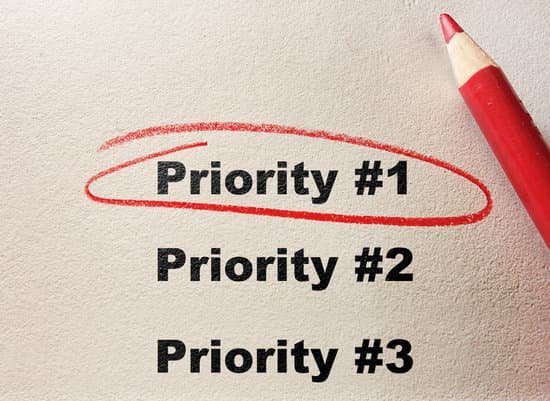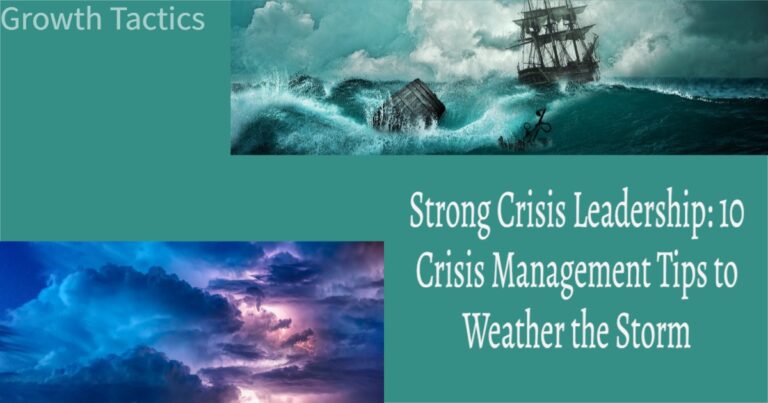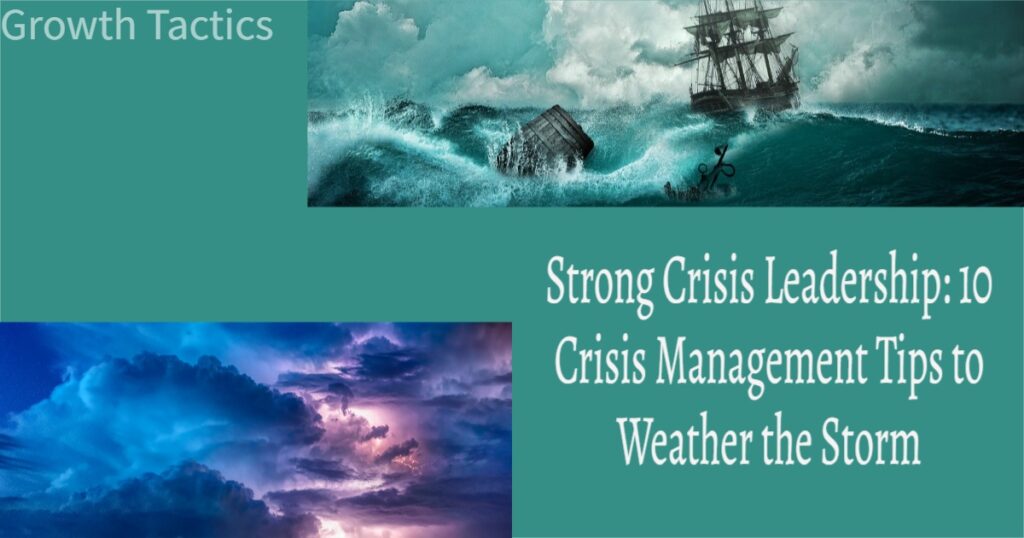Understanding how to lead through a crisis is vital to successfully making it through it unscathed. It doesn’t matter if you are a supervisor, a team leader, or just a leader of your family you can benefit from the tips contained in this article.
During the COVID-19 crisis, everyone’s adaptability was tested. That wasn’t the first crisis we faced and it won’t be the last. In times like this, leaders can’t become part of the problem. Leaders need to be part of the solution by leading our teams through these uncertain times.

Jump To Section
Why is Crisis Management Important?
Whether you are a manager, a boss, or just somebody that people look up to, you are a leader. As a leader, you will face a crisis at some point. Some are bigger than others but while they happen they can feel like the whole world is coming down around you. When this happens the people you lead will be looking to you for guidance and strength.
This is where strong crisis management skills can help you, your employees, your family, and your friends get through these situations stronger than before. Effective leaders find a way to sustain and even excel during emergencies.
So what can you do to manage a crisis? The first thing you want to do is have a plan. You want to do this as soon as possible. You can’t predict every crisis but know that at some point something will go wrong. Use this knowledge to prepare as much as you can. Crisis planning is key to beginning the process of getting back to normal. Even if normal is not the same normal you were used to before the crisis.
Crisis Planning
Really strong leadership in a crisis starts before a crisis occurs. It starts with crisis planning. Like I stated earlier, you can’t plan for everything but you can still make a plan. You can make it general for certain situations. For example, if you are the manager of an assembly line at a manufacturing business. You may want to have a plan for employees calling off, machines breaking, and employee injury, and plan for what to do if other departments get behind slowing you down.
Try to think of as many scenarios as possible so you can be as ready as possible. It may even be beneficial to rate each scenario on the likelihood of occurrence and severity. This will help you understand which scenarios are most important for training purposes.
It’s always best to write your crisis plan down so you and others can reference it when a crisis arises. You also want to try to make all affected parties aware of your plan so they know what to do without having to first come to you.
Tips to Help You Lead in Times of Crisis
Tip #1: Keep calm
It’s important to keep your emotions in check as a leader during a crisis. When we let our emotions get the best of us, we make bad decisions. Staying calm and collected can help us make the best decision for the given circumstances. Whatever happens, try to make it a point to not let those in your circle of influence see you getting too emotional.
Here are some great ways to keep your calm:
- Practice meditation
- Exercise
- Use a stress ball
- Learn NLP and set up an anchor
- Utilize breaks to take your mind off stressors
- Get plenty of sleep
Tip #2: Minimize rumors and hearsay amid uncertainty
During times of turmoil, many people start stating their opinions like facts. This can cause panic, disruption, or even worse people act on this information thinking it’s true, and negative outcomes may happen. To expel these rumors, we need to do our best to stay informed and keep our team informed. We need to make sure we are not helping spread the rumors or even starting the rumors as leaders.
#3: Stay positive

Strong leadership in a crisis can be tough but keep a positive outlook and try to not let the negativity overwhelm you. When we focus on the negative, everything becomes harder.
When we focus on the negative and truly believe something will happen, many times we subconsciously do things to make our beliefs a reality. We do the same thing with positive thoughts. This is the theory behind manifestation.
Focus on the positives to keep both your mind and your subordinates’ minds in the right place. This positive way of thinking will make positive things much more likely to come your way. Just like negativity, when you think positively, your subconscious mind will seek out those positives.
For more information on manifestation read 9 Principles of Conscious Manifestation.
Tip #4: Set the example
As a strong leader, you set an example for others to follow. This is the time to lead by example. If you are negative and show signs of being completely stressed out, chances are those around you will follow suit.
The old saying “do as I say and not as I do”, doesn’t fit into what a leader is trying to do. This is a very hypocritical way of thinking. A leader should never be a hypocrite because it won’t be long before their followers stop following them. Do the right thing and others will follow you.
Tip #5: Be supportive
If times are tough for you, times are tough for those around you. Everyone will react differently to the fear and uncertainty of a crisis so it’s important to keep an eye on everyone. As leaders, we must show our support and be understanding of how our followers are feeling.
During times like this people need a shoulder to lean on. Be a good listener and help them in any way you can. Listening to those around you is not only important for strong leadership in a crisis but should be something you are doing at all times.
Tip #6: Prepare for the worst

Always hope for the best but be prepared for the worst to the best of your ability. Put yourself and your team in a position where you are ready for whatever may come. Have a crisis plan. Just be careful, there is a fine line between being prepared and acting panicked. You need to be prepared to make decisions. Don’t overreact to situations that don’t warrant such a severe reaction. Panicking will make those around you panicked and will lead to more confusion and bad decisions.
Tip #7: Stay focused
Strong leadership in a crisis means keeping yourself and your team focused on the task at hand. Crisis response will require your focus.
That may mean dealing with the crisis or it may mean not letting the crisis steal your attention so you can get other stuff done. It all depends on the situation but if you are constantly letting your or the team’s focus drift from the task at hand, your productivity will suffer or even grind to a screeching halt. Keep your team focused on the high-priority items and not waste all their energy on low priorities.
Tips to Stay Focused
- Limit Distractions – Distractions like cell phones, email, kids, pets, and television can destroy your focus.
- Use Technology to Your Advantage – Apps like Wonderlist are great for helping you set up to-do lists. Some apps can disable things like the internet and phone calls for a specific set of time.
- Take Breaks – It may sound like a bad idea at the time but breaks can help you get your mind back in the right place. The best thing to do is to schedule your breaks either based on time or based on completing something.
- One task at a time – Try your best to focus on completing one task before moving on to the next.
Tip #8: Don’t forget positive reinforcement
Even though there may be a lot of negative things happening in your world right now, don’t forget the power of positive reinforcement. Great leaders understand the power of positive reinforcement.
When people do something great, reward them. This will help keep spirits high, even in the wake of a bad situation. Many times, all it takes is simply telling somebody “Great job” and you’ve made their day. Positive reinforcement can make leadership in a crisis a lot easier.
Tip #9: Explore the upside in the situation
It’s not always easy to see but just about every situation has a silver lining. Look at the Coronavirus situation we are in at this moment. Many of us are forced to stay inside and not see our friends or go out and do things that we want to but we get to spend some quality time connecting with our family at home. There is an upside to nearly all situations, you just have to be looking for it. Keeping everyone positive in tough situations is an important skill for strong leadership in and beyond a crisis.
Tip #10: Readdress your priorities

During any crisis, you need to make sure your and your team’s priorities are in order. You don’t want to be focusing on the wrong thing just because things may be a little hectic. It will be very advantageous to take a step back and think about your priorities to make sure you are focusing on the things that matter in a time like this. Focusing your time and energy on low priorities that don’t tie into your higher priorities can drain you. Leaving little time and energy for the things that matter.
Additional Apps that can Assist with Crisis Management
Everbridge: The All-In-One Crisis Communication App
When it comes to crisis management, communication is the key. Everbridge is an all-in-one app that allows you to send mass notifications, collaborate in real-time, and manage incidents seamlessly. Whether it’s a natural disaster, security breach, or any other emergency, Everbridge ensures that relevant information reaches the right people instantly, regardless of their location or device. With its integrated incident management tools, you can coordinate a response, assess the situation, and allocate resources efficiently.
Zello: Instant Communication in Critical Situations
In times of crisis, every second counts. Zello is a push-to-talk app that transforms your smartphone into a two-way radio, enabling instant voice communication. When text messages or emails might be too slow or inefficient, Zello allows you to connect with your team or loved ones in real-time. This app is particularly valuable in scenarios where immediate coordination is necessary, such as search and rescue missions, fire drills, or fast-moving crises. The ability to communicate clearly and rapidly can make a significant impact on the outcome of any crisis.
Emergency: Your Personal Pocket Guide
The Emergency app, developed by the American Red Cross, is like having a personal emergency guide right in your pocket. This app provides crucial information and detailed instructions to help you navigate through different emergencies. From step-by-step instructions for CPR to disaster preparedness tips and location-based weather alerts, Emergency equips you with the knowledge you need to stay safe. The app also includes features like one-touch access to emergency services and the ability to let your loved ones know you’re safe.
CrisisGo: Streamlining Crisis Response in Educational Institutions
For educational institutions, CrisisGo is a game-changer in crisis management. This app is specifically designed to enhance emergency preparedness and response in schools, colleges, and universities. CrisisGo offers a variety of features to streamline crisis response, including panic button activation, incident reporting, and tools for reunification. With CrisisGo, educators can quickly alert authorities or request immediate assistance during critical situations. The app also facilitates the communication and coordination of different stakeholders, ensuring a swift and organized response.
Medical ID: A Lifesaving App in Emergency Situations
During medical emergencies, every second is crucial. Medical ID, an app available on iOS devices, allows users to store critical health information for emergency responders. By inputting essential medical details, such as allergies, existing conditions, and emergency contacts, Medical ID enables first responders to gain vital insights quickly. What makes this app particularly invaluable is that it can be accessed even when the device is locked, ensuring that critical information is readily available during critical moments. For individuals with chronic health conditions or those who require special care, Medical ID can be a lifesaver.
Life360: Reassurance and Tracking for Families
When a crisis looms, we all want the assurance that our loved ones are safe. Life360 offers peace of mind by providing real-time location sharing, emergency SOS alerts, and check-in features to keep families connected during trying times. The app allows families to create private groups, enabling them to track each other’s locations with updated GPS data. Life360 also includes a panic button feature that can send an immediate alert to family members in case of an emergency. In times of crisis, knowing that your family members are secure can alleviate anxiety and help you focus on managing the situation at hand.
Personal Example of How to Lead Through a Crisis
This is a personal example from my past of good leadership during an emergency. In 2018, the base I was working at was devastatingly hit by Hurricane Michael. This hurricane not only destroyed the base but also many people’s homes and belongings. We did not know how we were possibly going to make it through this crisis.
There was a leader above me who had just started working for us a couple of months before the hurricane. She stepped up to not only call each one of us and check in on us but she was going from home to home to see if people needed help. Helping board up windows, tarp roofs, cut down trees, or just about any other task needed to get people back on track.
She used many of the leadership qualities and tips I talked about above to help all of us get through the crisis. She was calm but focused, very supportive, stayed positive, and set an example for the rest of us to follow. Her bravery and excellent leadership skills gave us hope and kept us going through the rough times.
Inspiring Quotes for Crisis Leadership

“Any kind of crisis can be good. It wakes you up.” – Ryan Reynolds
“Crises are part of life. Everybody has to face them, and it doesn’t make any difference what the crisis is.” – Jack Nicklaus
“Don’t wait until you’re in a crisis to come up with a crisis plan.” – Phil McGraw
“Great occasions do not make heroes or cowards; they simply unveil them to our eyes. Silently and imperceptibly, as we wake or sleep, we grow strong or weak; and at last, some crisis shows what we have become.” – Brooke Foss Westcott
“In crisis times, it’s not more difficult to motivate your staff, because everyone gets much more focused on how they control their economic destiny.” – Reid Hoffman
“Losing your head in a crisis is a good way to become the crisis.” – C.J. Redwine
“There’s always an opportunity with crisis. Just as it forces an individual to look inside himself, it forces a company to reexamine its policies and practices.” – Judy Smith
“When written in Chinese, the word crisis is composed of two characters — one represents danger, and the other represents opportunity.” – John F. Kennedy
For more leadership quotes click here.
Bottom Line
Every crisis will pass, but things may not be the same after it’s over. Good crisis management and strong leadership in times of crisis can help you and your team come out on the other side stronger and better than ever before. It’s easy to be a leader when things are going great but what shows a leader’s true grit is how they handle it when things are going badly.
Many times crises will lead to transformation. Transformation may be necessary to survive the crisis. Click here to learn how to become a better transformational leader.
If you enjoyed this article please don’t forget to share and subscribe using the buttons below.


